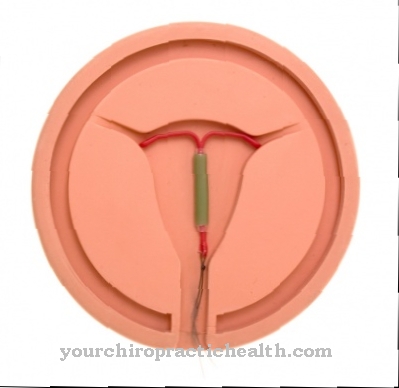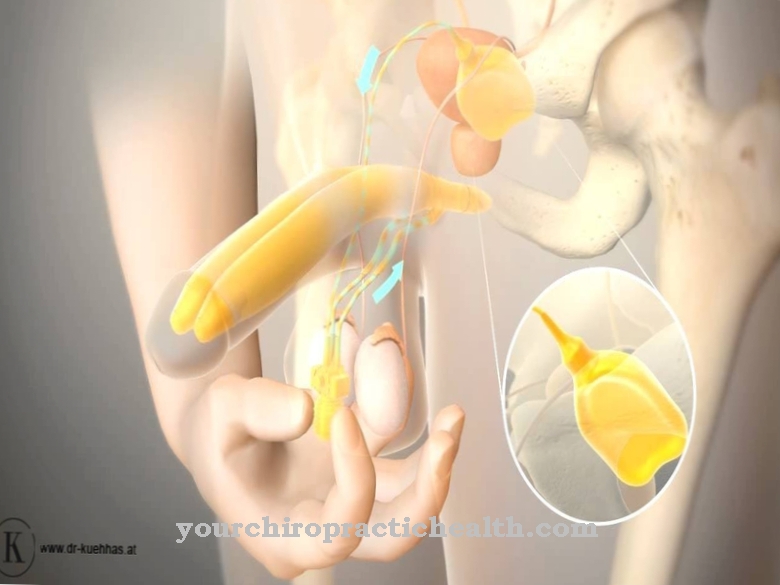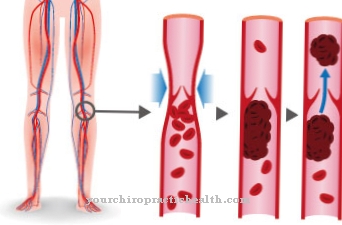This guide is about nausea and vomiting during pregnancy. Particular attention is paid to the phases of pregnancy, the causes, effects and treatment options of vomiting and nausea during pregnancy.
Causes of Vomiting & Nausea

If there is a pregnancy the mother has to build and nourish the child in her body, i.e. a completely new organism. This means a considerable additional burden for them, which they can only cope with if their body changes and rearranges in some ways.
However, the requirements are not evenly distributed over the entire pregnancy, rather they change both qualitatively and quantitatively. Three major stages can be distinguished: the stage of adaptation, which includes the first to fourth month of pregnancy, the stage of well-being from the fourth to seventh month, and the stage of stress, which extends from the eighth to tenth month.
We are primarily interested in the conditions in early pregnancy. During this time, the female body changes little in its external form, but there are already numerous important changes taking place inside, which take place particularly in the area of the internal glands, the circulatory and nervous system and in the metabolism.
All of these processes serve to prepare for the increased performance required of the expectant mother. For example, there is a gradual increase in the amount of blood of around one liter throughout pregnancy. This is also quite easy to understand when you consider that the slow growth of the child in the womb means that the mother has a greater body mass to be supplied with oxygen and other nutrients.
The increase in the amount of blood consists not only in mobilizing the reserve blood, but above all in an actual increase in the proportion of blood, especially of the plasma. In this way, additional care for the child is ensured. Furthermore, certain internal glands strengthen their work, the pituitary gland, adrenal cortex, thyroid gland.
Others, for example the ovaries, reduce their activity because their hormone production is taken over by a newly developed glandular organ, namely the placenta, for the duration of pregnancy. The large digestive glands also adjust to an increased readiness, so that the composition of the gastric juice also shifts somewhat. The entire nervous system has to perform particularly important functions through its regulating functions, which have an inhibiting or exciting effect depending on the need.
These are just some of the most important changes that take place or are initiated in the first few months of pregnancy. However, from this short list you can already see how complicated and multi-layered these processes, which take place side by side and sometimes also with one another, are to which the body of a pregnant woman has to adapt in a relatively short time. It is therefore understandable that precisely in this situation disturbances often occur which can express themselves in different ways.
Effects of vomiting during pregnancy
The best known and most common is nausea and vomiting during pregnancy, which begins a few weeks or days after the onset of pregnancy - therefore it is one of the earliest and relatively certain signs of pregnancy - and generally stops at the beginning of the fourth month.
It occurs in a mild form with a great many women - sometimes only when eating certain foods that they suddenly feel an aversion to. In this form it has no pathological significance, because the general condition of the person concerned is not or only insignificantly impaired. Vomiting tends to occur in the early morning hours, but it can also be felt at other times of the day.
But there are now women who have a much stronger vomiting. You vomit ten to twenty times a day and also at night, feel disgust and reluctance to eat anything, lose weight rapidly within a short time, and look pale and dilapidated. In these cases, which almost always require inpatient treatment in a gynecological clinic, one speaks of hyperemesis gravidarum, which means insatiable vomiting or, literally, excessive vomiting in pregnant women.
In contrast to the mild form, vomiting, this disease belongs to the early gestosis or toxicosis and is a pregnancy-specific disorder. There is no relationship to the late toxicoses occurring in the last trimester of pregnancy.
The particular danger of vomiting during pregnancy is that the frequent vomiting on the one hand and the insufficient intake of food and fluids on the other hand mess up the regulation of the metabolism or make it impossible. A similar condition develops as after a long starvation: First the glycogen content of the liver and muscle tissue is used up, then the fat and protein reserves. Most disastrous, however, is the constant loss of fluids, which leads to dehydration, so that ultimately severe poisoning occurs.
Although the symptoms are well known and can be treated successfully even today, their origin is still not fully understood. Of the numerous theories that deal with this, the view that the real cause is to be found in the mental behavior of the pregnant woman has found widespread acceptance. A negative attitude towards the child or the husband should be the triggering factor. This more or less consciously felt reluctance to the outside is not openly admitted, but demonstrated in the form of vomiting.
Of course, it is not uncommon that, especially at the beginning of an inherently unwanted pregnancy, the child is not always expected with joy. The reasons for this are different, they can be with the woman herself, but also with the man or in unfavorable external circumstances (job, home, etc.). In such cases it is quite possible that the woman reacts with a mentally bad posture and as a consequence, a psychologically induced vomiting occurs during pregnancy.
This reaction is further promoted by the fact that during this time the central nervous system in general and its vomiting center is more easily excited. Basically, however, these are exceptional phenomena, and it would be fundamentally wrong to only look at every woman who suffers from pregnancy vomiting from this perspective.
Mentally conditioned disorders are known to be very widespread and occur practically as often in men as in women. We only need to think of heart and stomach neuroses, which also very often develop as a result of some conflicting situation. We also know that every organic disease can be overlaid by psychogenic mechanisms in its manifestations.
Treatment & Therapy
Like any other disease, vomiting during pregnancy always requires a thorough examination and, in particular, a check of the metabolic status, because in most cases it is caused by adjustment difficulties. It is predominantly physically not too robust, rather somewhat unstable and delicate women who are affected by the severe form of vomiting because their nervous system reacts particularly sensitively to the numerous changes in early pregnancy, and above all to the changed hormonal conditions.
Vomiting is undoubtedly an expression of the changing and not yet properly regulated neurohormonal functions in this unstable phase of early pregnancy, whereby the external reaction of the stomach is the most impressive, but by no means the only response of the maternal organism. This theory is also supported by the fact that vomiting stops in the vast majority of cases in the second trimester of pregnancy, because then the stage of adaptation is over and a certain stabilization begins.
So what can be done to facilitate these adjustment processes? Once pregnancy is known, one should be wary of excessive physical activity, especially in those sports that involve intermittent physical shock, such as horse riding and motorcycling.
There is nothing wrong with swimming in the first few months, and gymnastics can even be practiced throughout pregnancy, in the later months it is useful as part of the psychoprophylactic preparation for childbirth, during which a gymnastics program adapted to the respective stage of pregnancy is trained. Regular walks of one to two hours a day are highly recommended and practically feasible for every woman, but not as a city or shopping trip, but preferably in green spaces or wooded surroundings.
At the first sign of vomiting or nausea, it is advisable to change your diet to an easily digestible, vitamin-rich diet, which should be distributed in several small portions over the whole day instead of the usual large main meals. It is often beneficial if you have your first breakfast in bed in the morning and then take a short break before the usual daily routine begins.
Make sure you drink plenty of fluids to supplement the loss of water and salt in the event of frequent vomiting, but only in small amounts so that the stomach is not overburdened. If the expectant mother follows these instructions, she can also help on her own to make the changeover easier for her organism.




















.jpg)

.jpg)



